Musician Luu Cau's real name is Nguyen Hoan Cau, from Soc Trang town, Hau Giang province. He was born on November 30, 1930. He joined the revolution very early. In 1948, musician Luu Cau was transferred to the Southern Voice Radio Station, which was then based in U Minh forest. He left an impression on the public with a youthful, simple, and emotional soul through songs such as: "Eastern Forest", "Central Highlands Story", "You and I"...
In late 1954, when regrouping to the North, musician Luu Cau studied at the Vietnam Music School (now the Vietnam National Academy of Music) and then worked at the Music Department of the Voice of Vietnam . His outstanding songs during this period were: "My Hometown", "The South Remembers Forever Your Grace"... and the song "Come Here with the Train Road" written about the youth volunteers. Musician Luu Cau's music tends toward deep lyricism with folk influences and has its own style.
As one of the first Vietnamese musicians to receive professional training at the Vietnam Conservatory of Music, musician Luu Cau has tried his hand at many musical genres such as: songs; choir and orchestra; pieces written for solo instruments; composing music for dance and film. Through each work in each genre, listeners can see the explorations such as: melody structure, musical image... In addition to composing music, musician Luu Cau also works as an editor, a person in charge of the Music Editorial Board. The musician has contributed to bringing tens of thousands of songs and music pieces to the radio waves to promptly reflect the musical life and serve the political tasks of the Party, while improving the musical aesthetics of listeners.
In 2001, musician Luu Cau was honored to receive the State Prize for Literature and Arts for the works: "Oh South, we are ready", "Come back here with the railway", "The South will forever remember your grace", "Song of the heroic country" and the choral work "Cuu Long Giang".
In his composing career, musician Luu Cau reached the peak with the song “Mien Nam nho mai than nguoi” (lyrics from Tran Nhat Lam’s poem), one of the most successful musical works about Uncle Ho. The song “Mien Nam nho mai than nguoi” was released just about a week after Uncle Ho passed away (in 1969), and was the first song about Uncle Ho after his death, recorded and broadcast by the Voice of Vietnam. Immediately, “Mien Nam nho mai than nguoi” became the most sung song in those days.
According to musician Truong Quang Luc: “One autumn morning in 1969, Luu Cau followed the delegation of Voice of Vietnam radio to Ba Dinh Square to bid farewell to Uncle Ho. In his infinite grief, Luu Cau seemed to hear somewhere the heartfelt words of Uncle Ho: “The South is the blood of Vietnamese blood, the flesh of Vietnamese flesh. Rivers may dry up, mountains may wear away, but that truth will never change”. That heartfelt saying has long touched the burning hearts of the Southern people who gathered, and now gives Luu Cau the emotion to write this song: “Even though the mountains may wear away, and the river may dry up/Oh South, South, forever remember your deep gratitude? The two words “South” are always in your heart/I miss you day and night without a moment of rest…”.
In 2001, participating in the "Music lovers comment on music" section of Music on request of listeners (YCTG), many friends wrote articles about the song "The South remembers forever the grace of the Lord". Friend Cao Lan Huong in team 5, Phu Chau, Dong Hung, Thai Binh opened her article: "Uncle Ho is the crystallization of Vietnamese beauty - He is the lotus of mankind" - poet Che Lan Vien wrote about Uncle Ho like that. Yes, no one knows since when the image of Uncle Ho has become an eternal monument in the hearts of Vietnamese people and the song "The South remembers forever the grace of the Lord" is a thought, a deep gratitude of the people of the South towards the beloved father of the nation.
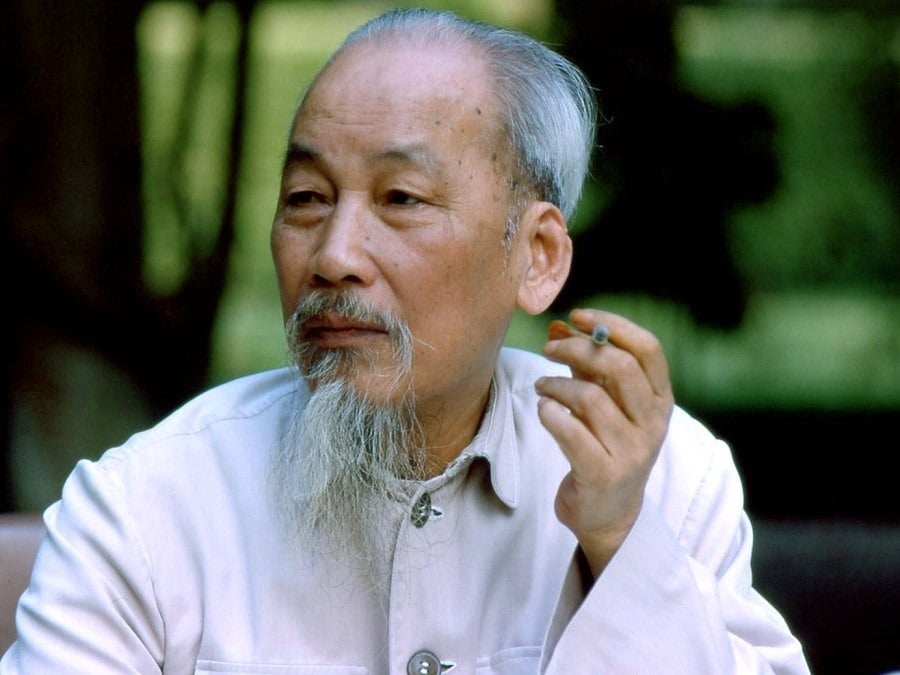
According to Cao Lan Huong, right at the beginning of the song, musician Luu Cau affirmed: "Even though mountains may erode and rivers may dry up", "The South will always remember you with gratitude".
Also about the song “The South remembers forever the grace of Uncle Ho”, Hoa Hong Lien in An Duc, Quynh Phu, Thai Binh wrote: “A song of deep nostalgia where people and scenery are intertwined and blended together in a feeling of beloved Uncle Ho. Everything seems to be holding on to Uncle Ho’s figure forever. Although Uncle Ho is no longer here, we have fulfilled his wishes and offered him with sincere hearts the most beautiful flowers”.
Sharing the same thoughts as Hoa Hong Lien, but having her own feelings about the composer, Cao Lan Huong wrote: "I have no idea where musician Luu Cau was born and raised, but one thing I feel about the musician is his sincere and heartfelt affection for beloved Uncle Ho."
Before concluding her review, Cao Lan Huong expressed: “I would like to mention the name of a very good poem by Felix Pita Rodriguez, a Cuban poet: “Ho Chi Minh, his name is a whole poem”. Yes, he is a symbol of the Vietnamese people. Ho Chi Minh has become the common language of our people as poet Nguyen Dinh Thi wrote: Our people call him Uncle/ His whole life belongs to the country”.
Source: https://vov.vn/van-hoa/am-nhac/mien-nam-nho-mai-on-nguoi-tieng-long-cua-dong-bao-mien-nam-voi-bac-post1098172.vov



![[Photo] National Assembly Chairman Tran Thanh Man attends the VinFuture 2025 Award Ceremony](/_next/image?url=https%3A%2F%2Fvphoto.vietnam.vn%2Fthumb%2F1200x675%2Fvietnam%2Fresource%2FIMAGE%2F2025%2F12%2F05%2F1764951162416_2628509768338816493-6995-jpg.webp&w=3840&q=75)



![[Photo] 60th Anniversary of the Founding of the Vietnam Association of Photographic Artists](/_next/image?url=https%3A%2F%2Fvphoto.vietnam.vn%2Fthumb%2F1200x675%2Fvietnam%2Fresource%2FIMAGE%2F2025%2F12%2F05%2F1764935864512_a1-bnd-0841-9740-jpg.webp&w=3840&q=75)
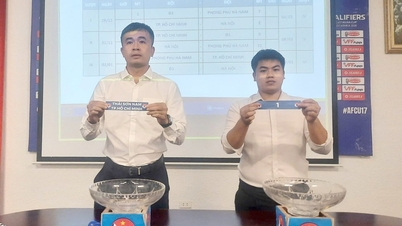

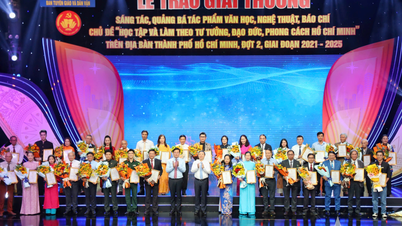

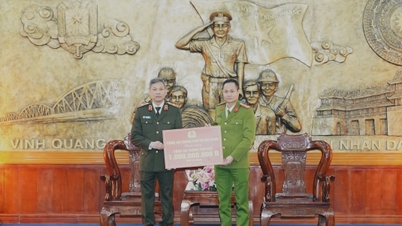





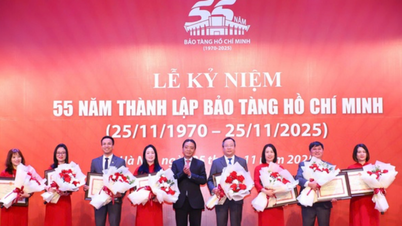









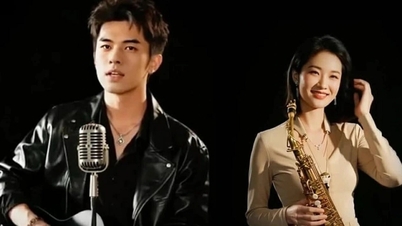
































































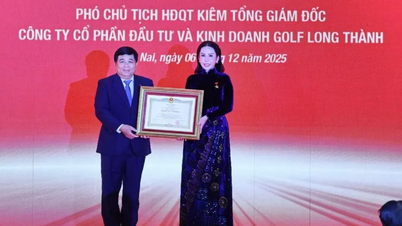

















Comment (0)